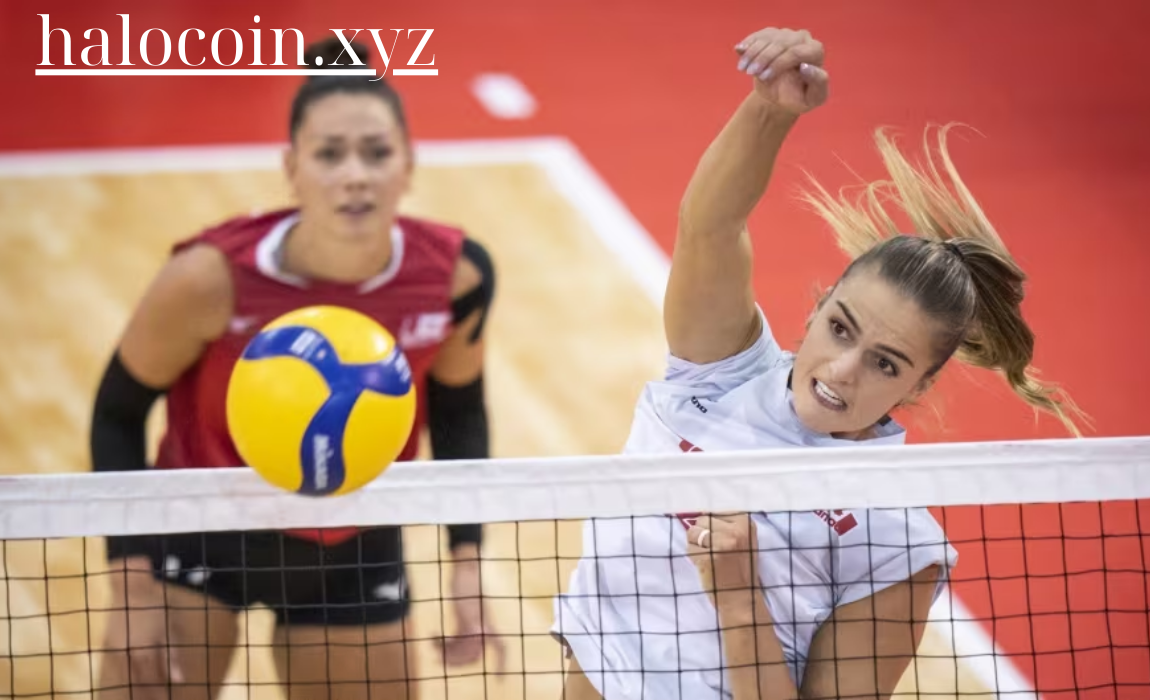Leagues & Competitions
Local Volleyball Leagues: Get Involved in Your Community’s Top Matches
Volleyball is a fast-paced, exciting sport that thrives at the grassroots level, bringing together players of all ages and skill levels in local leagues. Whether you’re an experienced player, a beginner, or a fan, local volleyball leagues offer a fantastic opportunity to get involved in your community, stay active, and discover hidden talents. From youth leagues to recreational adult teams, these local competitions foster a sense of camaraderie and provide a platform for players to showcase their skills. Here’s how you can get involved in your community’s top matches and make the most of local volleyball leagues.
1. Why Local Volleyball Leagues Matter
Local volleyball leagues are essential for building a strong foundation for the sport, encouraging physical fitness, teamwork, and social interaction. They serve as a stepping stone for developing talent, with many players progressing to higher levels of competition, including regional, national, and even professional leagues.
Benefits of Local Volleyball Leagues:
- Player Development: These leagues provide players, especially younger athletes, with a chance to improve their skills in a competitive but supportive environment.
- Community Engagement: Local volleyball leagues bring together people from different backgrounds, fostering community spirit and creating lasting friendships.
- Path to Higher Levels: For talented players, performing well in local leagues can lead to opportunities to compete in more advanced leagues and tournaments.
- Fitness and Fun: Volleyball is a great way to stay active and have fun, with local leagues offering competitive play while promoting health and fitness.
2. How to Find Local Volleyball Leagues
Getting involved in local volleyball leagues is easier than you might think. Most communities offer a range of leagues catering to different age groups and skill levels, from recreational leagues for beginners to more competitive leagues for seasoned players.
Ways to Find Local Volleyball Leagues:
- Community Centers and Recreation Departments: Local community centers and parks and recreation departments often organize volleyball leagues for youth and adults. These leagues are great for players of all levels and offer a structured environment for competition.
- Local Volleyball Clubs: Many cities and towns have volleyball clubs that host leagues, tournaments, and training programs. These clubs often cater to youth development as well as adult recreational and competitive teams.
- Schools and Universities: Schools, universities, and colleges often have intramural and club volleyball teams that welcome players from the local community. These leagues can be a great way to meet people and play in a more organized setting.
- Social Media and Online Platforms: Social media platforms and community websites, such as Facebook, Meetup, and Eventbrite, often list local volleyball leagues and events. A quick search can help you find a league near you.
- Sports Complexes and Gyms: Many local sports complexes and gyms offer volleyball leagues or pick-up games. These venues provide indoor and beach volleyball options, making them a great place to play year-round.
3. Types of Local Volleyball Leagues
Local volleyball leagues come in various formats and cater to different groups, making it easy for everyone to find a suitable league. Whether you’re a youth player, a recreational adult, or looking for a competitive team, there’s likely a league for you.
Common Types of Local Volleyball Leagues:
- Youth Leagues: These leagues focus on skill development, teamwork, and learning the fundamentals of volleyball. Youth leagues are often divided by age and skill level, providing a pathway for young players to grow and improve.
- Recreational Adult Leagues: Recreational leagues are ideal for those who want to play volleyball in a fun, low-pressure environment. These leagues are typically more relaxed and are perfect for beginners or those returning to the sport.
- Competitive Adult Leagues: For more experienced players, competitive adult leagues offer a higher level of play. Teams in these leagues often consist of seasoned players looking for a challenge and intense competition.
- Co-ed Leagues: Co-ed leagues are popular for both recreational and competitive players. They provide a fun, inclusive atmosphere where men and women can play together, fostering a more social experience.
- Beach Volleyball Leagues: If you enjoy playing outdoors, many communities offer beach volleyball leagues during the warmer months. Beach volleyball is often played with two or four players per team, offering a faster-paced game compared to indoor volleyball.
4. Spotting and Supporting Local Volleyball Talent
Local volleyball leagues are often home to undiscovered talent, especially in youth competitions where future stars begin to shine. Attending local matches or participating in the league gives you a chance to see promising players in action and support their growth.
Tips for Spotting Talent:
- Technical Skills: Players with strong serving, setting, and spiking abilities often stand out, even in local leagues.
- Teamwork and Communication: Volleyball is a team sport, and players who communicate effectively and show leadership on the court are key to a team’s success.
- Agility and Speed: Talented volleyball players are quick on their feet, displaying agility and fast reflexes, especially in defensive plays like digs and blocks.
- Passion and Dedication: The most talented players often exhibit a strong work ethic, continuously improving their skills and displaying a love for the game.
How to Support Local Volleyball:
- Attend Matches: Show up to local games and cheer on your community teams. Your support encourages players and helps build a strong local volleyball culture.
- Volunteer as a Coach or Referee: Many local leagues rely on volunteers to help run the events. If you have experience in volleyball, consider becoming a coach or referee.
- Sponsor a Team or League: Local volleyball leagues often need financial support for equipment, uniforms, and travel expenses. Sponsoring a team or league is a great way to invest in your community and help players succeed.
5. Get Involved: How to Join or Start a Team
Whether you’re new to volleyball or a seasoned player, joining or starting a local team is a great way to get involved in the sport and meet new people. Many local leagues are open to individuals who want to join a team or groups looking to form their own team.
How to Join a Team:
- Register as an Individual: Many leagues allow individual players to sign up and be placed on a team. This is a great option if you’re new to the area or don’t have a full team.
- Join an Existing Team: Reach out to local teams to see if they’re looking for additional players. Many teams are open to new members, especially in recreational leagues.
- Attend Open Tryouts or Practices: Some competitive leagues and clubs hold open tryouts or practices where you can showcase your skills and join a team.
How to Start Your Own Team:
- Recruit Players: If you have a group of friends or coworkers who want to play, consider forming your own team. Many leagues allow you to register a full team.
- Choose Your Level: Decide whether your team will compete in a recreational or competitive league, depending on the skill level and goals of your players.
- Find a League: Once you’ve formed a team, find a local league that matches your team’s abilities and schedule. Register your team before the season starts, and get ready to compete.
6. Challenges and Opportunities in Local Volleyball
While local volleyball leagues offer exciting opportunities for players and fans, they also face challenges such as funding, access to facilities, and coaching resources. However, these challenges also present opportunities for community investment and development.
Challenges:
- Limited Access to Facilities: Finding indoor or outdoor courts can be a challenge, especially in areas with limited sports infrastructure.
- Funding for Equipment: Many local leagues rely on donations or sponsorships to afford essential equipment like nets, volleyballs, and uniforms.
- Coaching and Training: Access to experienced coaches and proper training programs is crucial for developing young talent, but not all local leagues have these resources.
Opportunities:
- Community Involvement: Local businesses, schools, and organizations can invest in local volleyball leagues by sponsoring teams, providing equipment, or offering venue space.
- Player Development Programs: Organizing volleyball clinics and training camps can help local leagues improve the skills of their players, preparing them for higher levels of competition.
- Social Media and Streaming: Leagues can use social media to promote games, attract more spectators, and share highlights, creating excitement around local volleyball events.
Conclusion
Local volleyball leagues provide a valuable platform for players to grow, develop their skills, and enjoy the game in a fun and competitive environment. Whether you’re looking to play, coach, or support your community’s teams, getting involved in local volleyball is a rewarding way to connect with others, stay active, and foster a love for the sport. With numerous opportunities to join or create teams, attend matches, and support grassroots talent, local volleyball leagues are where future stars are born and communities come together through the power of sport.

